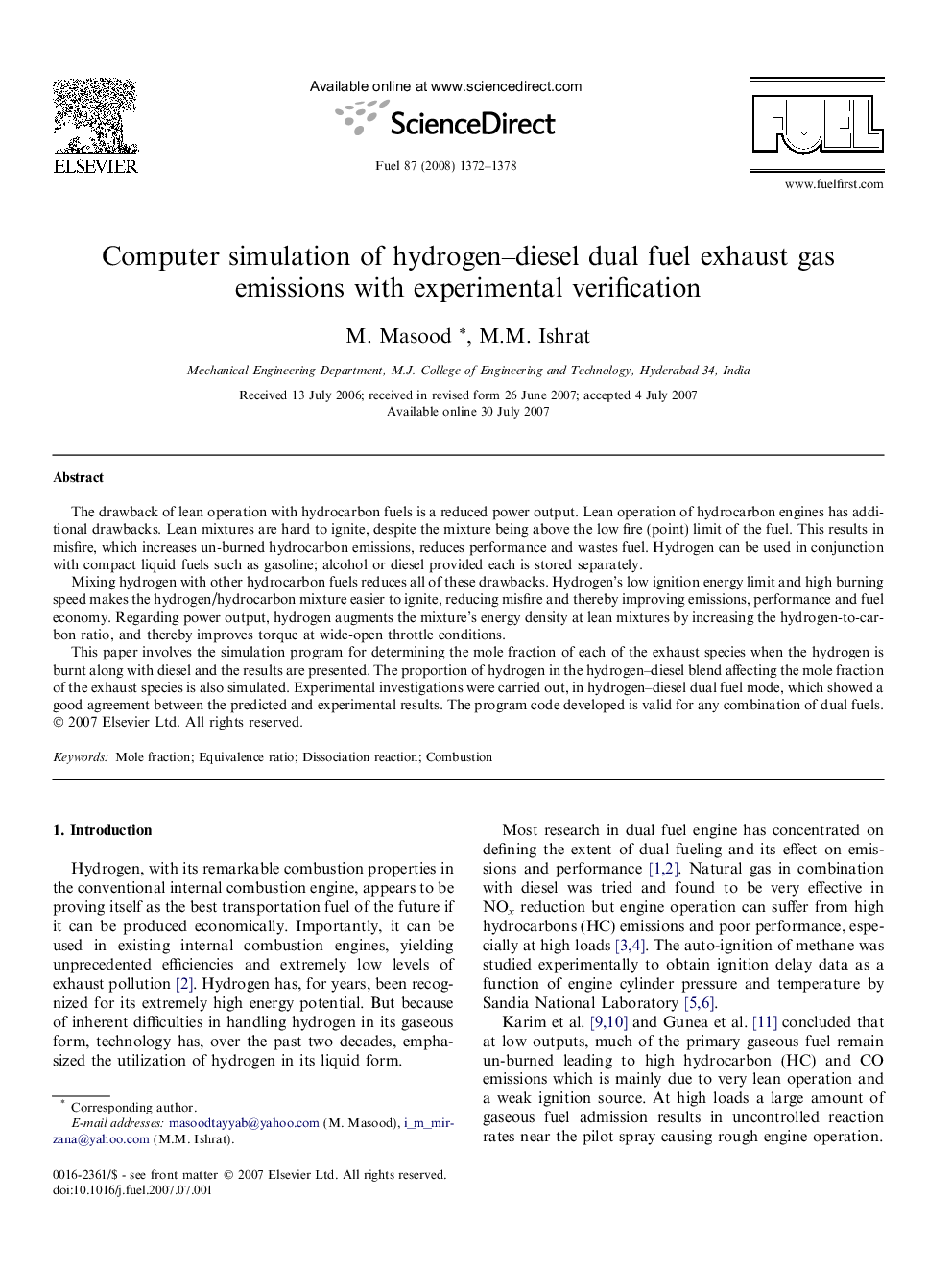| کد مقاله | کد نشریه | سال انتشار | مقاله انگلیسی | نسخه تمام متن |
|---|---|---|---|---|
| 208040 | 461235 | 2008 | 7 صفحه PDF | دانلود رایگان |

The drawback of lean operation with hydrocarbon fuels is a reduced power output. Lean operation of hydrocarbon engines has additional drawbacks. Lean mixtures are hard to ignite, despite the mixture being above the low fire (point) limit of the fuel. This results in misfire, which increases un-burned hydrocarbon emissions, reduces performance and wastes fuel. Hydrogen can be used in conjunction with compact liquid fuels such as gasoline; alcohol or diesel provided each is stored separately.Mixing hydrogen with other hydrocarbon fuels reduces all of these drawbacks. Hydrogen’s low ignition energy limit and high burning speed makes the hydrogen/hydrocarbon mixture easier to ignite, reducing misfire and thereby improving emissions, performance and fuel economy. Regarding power output, hydrogen augments the mixture’s energy density at lean mixtures by increasing the hydrogen-to-carbon ratio, and thereby improves torque at wide-open throttle conditions.This paper involves the simulation program for determining the mole fraction of each of the exhaust species when the hydrogen is burnt along with diesel and the results are presented. The proportion of hydrogen in the hydrogen–diesel blend affecting the mole fraction of the exhaust species is also simulated. Experimental investigations were carried out, in hydrogen–diesel dual fuel mode, which showed a good agreement between the predicted and experimental results. The program code developed is valid for any combination of dual fuels.
Journal: Fuel - Volume 87, Issue 7, June 2008, Pages 1372–1378